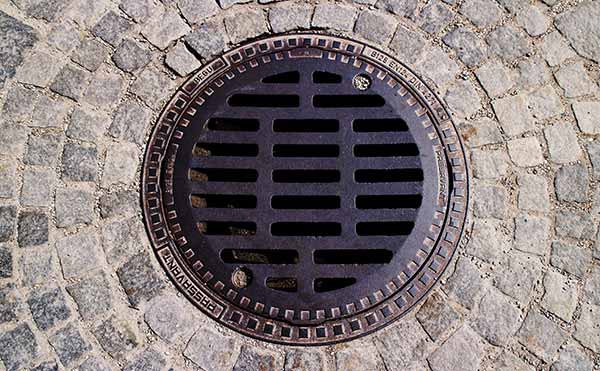 Want to hear a dirty joke? You deposited the wrong thing down your drain and now your septic tank is clogged.
Want to hear a dirty joke? You deposited the wrong thing down your drain and now your septic tank is clogged.
Seriously though, your septic tank is one of the most important parts of your home; that’s why you need to take care of it as much as you do the rest of the house. So let’s talk about your septic tank's functions and why it’s important to care for it; because really, having a clogged septic tank is the last thing you want.
Septic Tank 101
If you live in a rural area, you are probably familiar with that awkward patch of grass that looks different than the rest. It’s darker and grows back faster than the rest of your backyard. That’s where your septic tank lives. The septic tank is your family’s own sewage treatment spot, and when cared for properly you don't even know it's out there. The septic tank has the ability to separate heavy solids from lighter solids that come from your toilet, sinks, kitchen, and laundry waste. Lighter solids rise to the top of the tank to form a scum layer, because they’re the easiest to decompose. Heavier solids stay in the tank, and if you don’t remove them periodically through pumping, the waste can eventually overflow and backup into your drain, causing damage to your plumbing system.
You want to make sure you pump your tank regularly to keep your system intact. There are many factors that influence the frequency of septic tank pumping, such as the household size, total wastewater generated, the volume of solids in your wastewater, and your septic tank size.
There’s a lot that can go wrong with your septic tank if it’s not used correctly. If you notice any of the following problems, contact a professional for further assistance:
- Odors, surfacing sewage, wet spots in the drain field area
- Plumbing or septic tank backups
- Gurgling sounds in your plumbing system
- Slow draining fixtures
The Dos and Don’ts Of Your Septic System
In order to keep your septic system working properly, be sure to inspect to conduct regular maintenance. Septic tanks need to be pumped every three to five years, but you should try to inspect them once a year to ensure everything is going well down there. We suggest you keep accurate records that display your system’s location and maintenance for future homeowners. You always want to practice water conservation and reduce your water use so that your drain field’s lifespan is extended. Lastly, always keep a certified technician on speed dial so they can help you with any system breakdowns. You do not want to be scrambling to find someone to help after things have already gone wrong!
Even though many households utilize septic tanks, a lot of people still aren't sure how their septic system works. Some people think it only matters what you put down your kitchen sink. In reality, it matters what you put down every single drain in your home. Don’t think you’re going to get away with anything because you flushed something down the toilet rather then sticking it down the garbage disposal.
Items like dental floss, paint, and oils don’t decompose properly and will plug your drain system up, causing you problems you don't need (more on that in a future blog post)! You also want to make sure you keep traffic off your drain field. Don’t drive all over your septic tank, or plant a garden or build a pool near the system. Any type of cleaners for your house, waxes, or paints have the possibility to destroy the bacteria in your system and contaminate the ground and water.
This is a lot to take in, however this information will come in handy. When it comes to your septic tanks, clean talk is a lot better than dirty talk. Give us a call at (864) 242-5511 or contact us online today if you have any more questions about your septic tank system, you can even schedule service online. Happy plumbing!
If you enjoyed this article, please check out other posts on our blog and join us on Facebook, Twitter, LinkedIn, andGoogle+ to see why people call us "The Picky People's Plumber!"


.png)